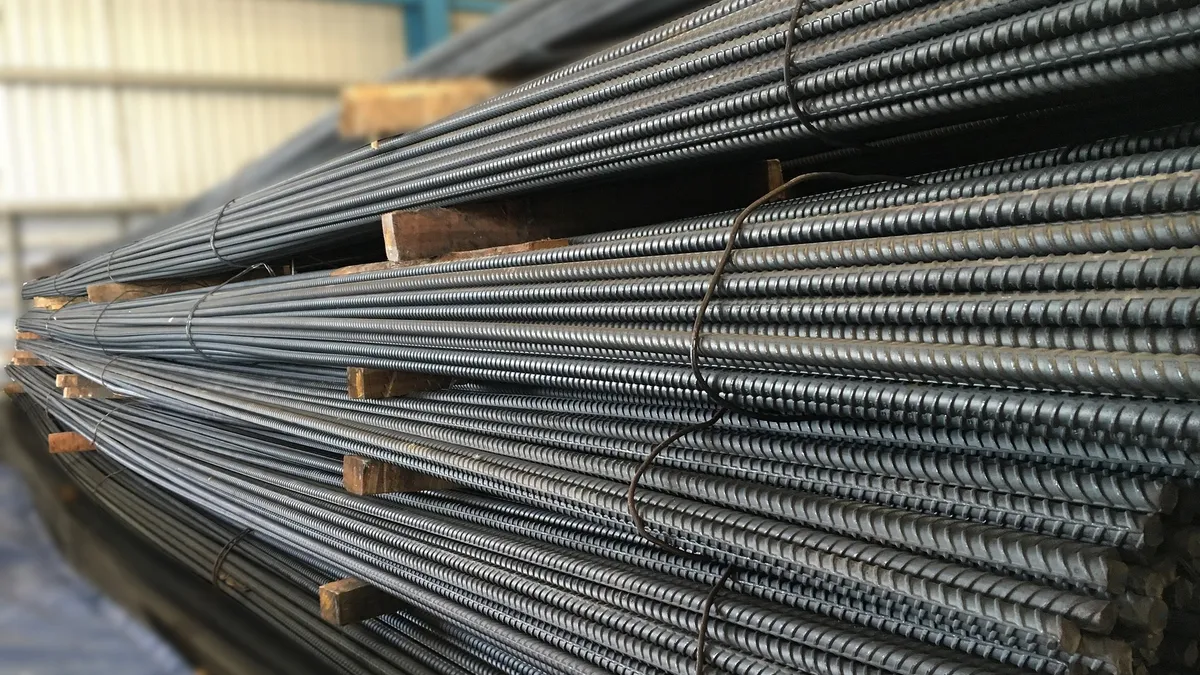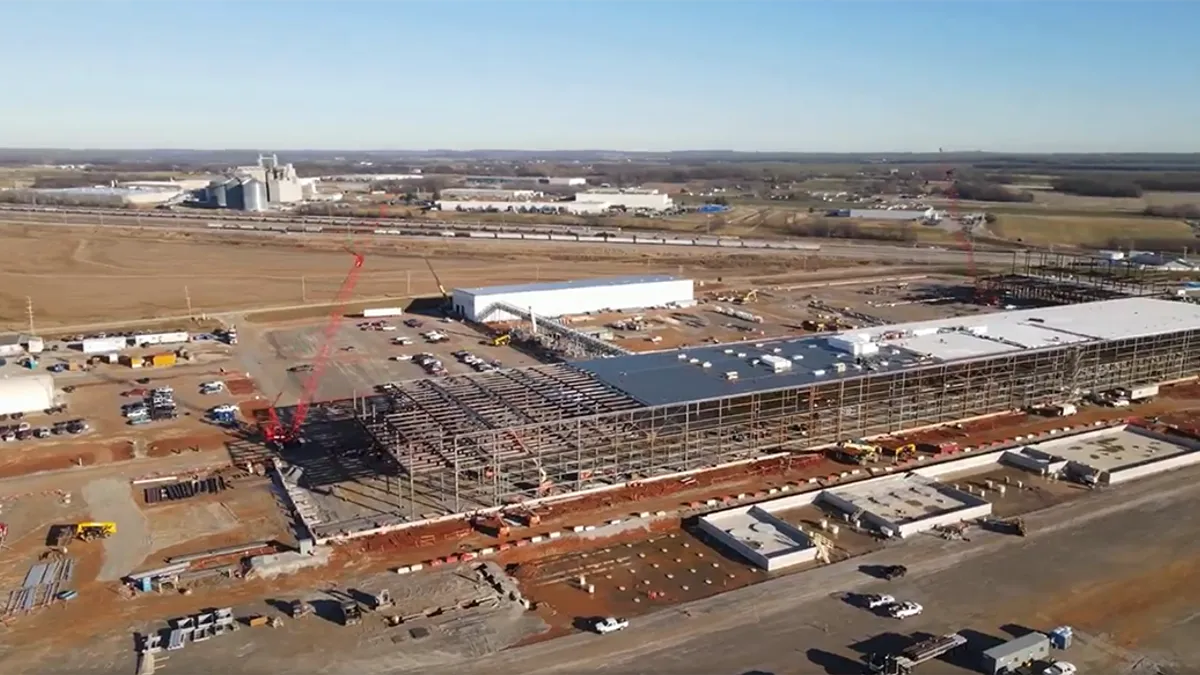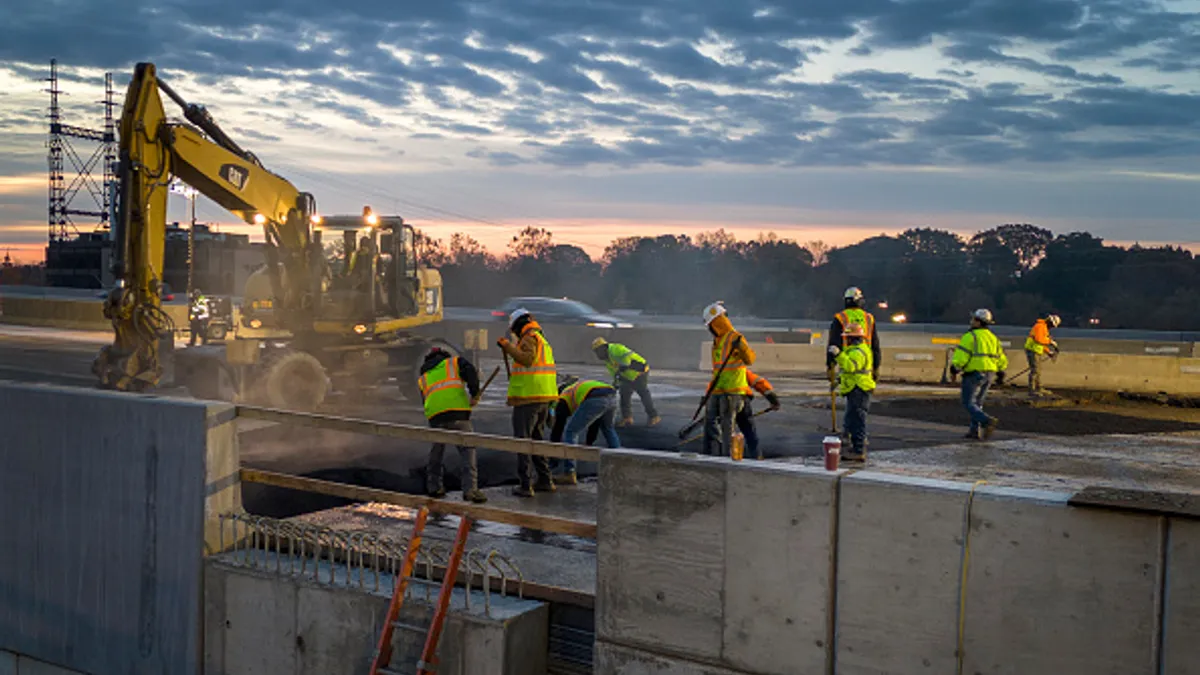Construction material prices are sometimes an unknown when planning a project. Whether related to tariffs, supply chain concerns or a volatile raw materials market, there could be fluctuations that can impact the bottom line for both owners and contractors.
For instance, the price of precast concrete products increased 4.4% from September 2018 to September 2019, the price of cement went up 2.2% and the price of construction equipment and machinery also increased by 2.2%, according to Bureau of Labor Statistics data compiled by Ken Simonson, chief economist of the Associated General Contractors of America.
However, the price for lumber and plywood decreased by 10.1% during that same time period, the price of fabricated structural metal bar joists and rebar fell by 3.1% and the price of prefabricated metal buildings dropped by 4.6%.
In addition, the persistent trade war between the U.S. and China brings in another level of uncertainty that has many in the construction industry wondering how to price out jobs that won't be complete for years into the future.
Some contractors might not realize, though, that there are circumstances under which they can mitigate or even eliminate the pain of significant and unexpected material price increases through the inclusion of escalation clauses in their contracts. In general, if material prices rise higher than what was included in the original bid, the contractor will be reimbursed for all or part of the difference.
Someone has to pay
Daniel Felsen, attorney and shareholder at the Washington, D.C., law firm of Carlton Fields, said that many public and private owners are willing to negotiate escalation clauses but that these provisions are more likely to come into play on large, private construction projects. "These clauses really deal with how the parties decide to allocate risk," he said. "If material prices jump, someone is going to have to pay for it."
Escalation clauses invariably are brought up on larger projects, said attorney Jason Kellogg, partner at the law firm of Levine Kellogg Lehman Schneider + Grossman in Miami, because the stakes are so much higher. For instance, if a project uses a lot of steel, just a small bump in the price can make a huge difference to both contractors’ and owners’ budgets.
A decade ago, he said, some contractors went out of business when there were simultaneous shortages of both steel and concrete. This drove up prices and left many contractors in the position of having to absorb the difference. “Contractors with escalation clauses made out better,” he said.
Contracts for lengthy projects are also more likely to include escalation provisions, said attorney James Carney, also with Carlton Fields, as it is more difficult for contractors to predict how material prices will change over the long term.
3 types of compromise
There are three basic types of escalation clauses, Carney said, all representing different levels of compromise between the owner and contractor:
- One is called a “day one” provision. This type of clause gives contractors the right to capture costs associated with material price increases immediately.
- The second sees contractors compensated after a set period of time. For instance, the terms of the contract could set out that the contractor cannot recover material cost increases for the first 100 days. This type of clause, Carney said, would be suited for longer projects.
- The third type results in a sharing of the risk. Under this clause, the contractor would be entitled to reimbursement for higher material prices but only after the rate of increase reaches a certain percentage. Up to that threshold, the contractor would bear the risk. This provision, Carney said, is contemplated under the Federal Acquisition Regulation (FAR) for public works projects as well.
Contingency funds could also be set up to pay for material price increases, Kellogg said, but he typically sees the issue addressed in stand-alone clauses. If the project does have a contingency fund, though, the owner can require the contractor to take material price increases from that pool of money first and then cover additional costs via an escalation clause.
But these provisions can also be a double-edged sword, Kellogg said. Faced with the prospect of having to pay significantly higher costs for materials, the owner could back out of the project.
When the owner doesn't budge
However, if the owner will not consider including an escalation clause in its agreement with the general contractor, the bids will likely be inflated to cover potential increases, and this flows through the project hierarchy.
Even when general contractors subcontract most of the work to labor- and material-intensive specialty companies and pass the risk of higher prices down the chain, those subcontractors will likely add premiums to their own proposals. Subcontractors then most always try to lock in prices with their own material suppliers for as long as they can, passing on the risk yet again.
So, the owner will likely pay at least a portion of material price increases through inflated bids whether it agrees to an escalation clause or not. And if there ends up being no price increase, the owner could end up paying more by not agreeing to an escalation provision.
One way contractors can make the idea of an escalation clause more attractive to owners, Felsen said, is to offer shared savings or some other benefit if material prices go down. Also, these provisions don’t have to cover all materials. It’s appropriate, he said, to include those that present the greatest cost concerns. “It doesn’t have to be one way,” he said.
But not all contractors bid on the large projects that typically see the inclusion of escalation clauses. Yet, they still have to bear the cost of material price increases just like any other company. Are these provisions totally out of the question for contractors bidding on smaller projects?
“You don't see it a lot on smaller projects, Kellogg said, “mostly because those contractors don't have the sophistication, wherewithal or leverage to extract that kind of provision out of the owner.”
But that doesn’t mean they shouldn’t have a go at it, he said.
“I think every contractor should try to include an escalation clause in their contracts under the mantra of ‘You can't get what you don't ask for,’” Kellogg said. “It’s always a good idea to ask.”




















